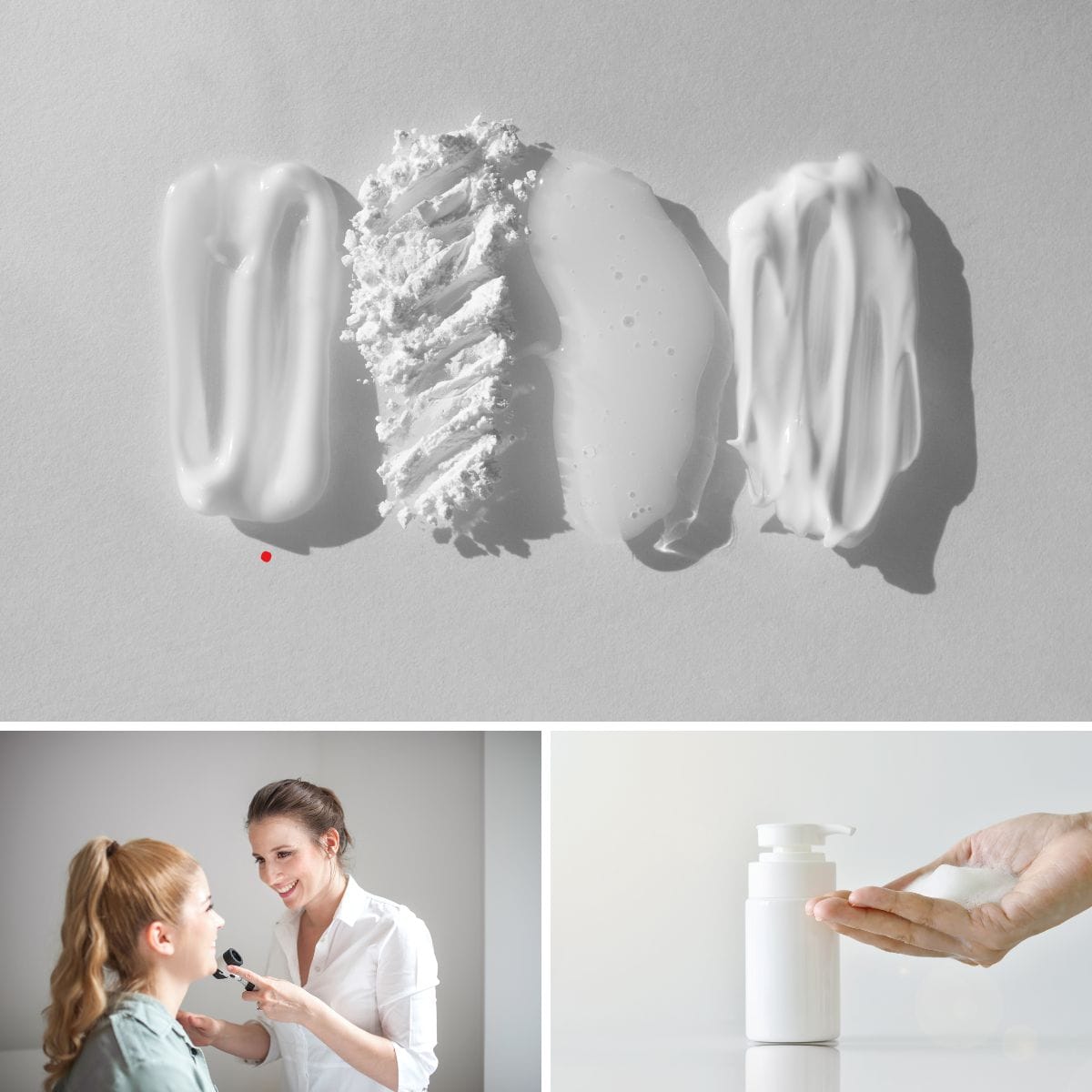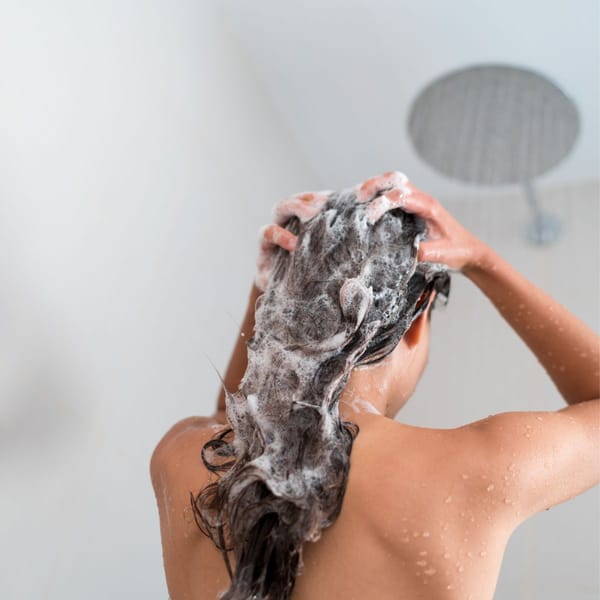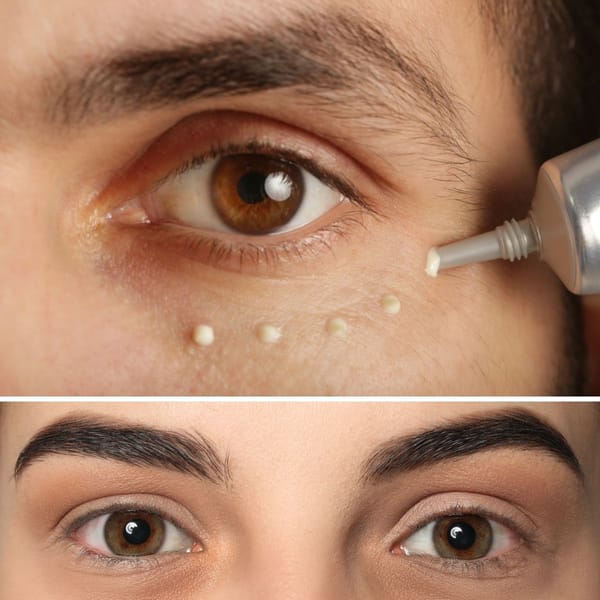Key Takeaways:
- Dermatologists often recommend gentle cleansers that maintain the skin's natural pH level and do not strip away essential oils.
- Ingredients like hyaluronic acid, glycolic acid, and ceramides are favored for their ability to cleanse effectively while preserving skin health.
- Choosing the right cleanser depends on your skin type, whether it's oily, dry, sensitive, or combination, and should be done with careful consideration of ingredients.
Cleansing is the cornerstone of any effective skincare regimen. With the plethora of products on the market, it can be overwhelming to choose the right one. Dermatologists, the guardians of skin health, have a wealth of knowledge when it comes to selecting the appropriate facial cleansers. This article delves into their expert recommendations, ensuring that you can make an informed decision for your skin's needs.
Understanding Your Skin Type
Before diving into the vast sea of cleansers, it's crucial to understand your skin type. Oily skin types may require a different approach compared to those with dry or sensitive skin. A board-certified dermatologist can help you determine your skin type and guide you toward products that will balance and enhance your skin's texture without causing irritation.
The Importance of pH Balance and Natural Oils
The skin's natural pH level and oils are vital for maintaining a healthy barrier. A gentle cleanser that doesn't disrupt this balance is key. Overwashing or using harsh products can strip away these oils, leading to dryness or overproduction of oil, which in turn can exacerbate skin issues.
Gentle Cleansers for Sensitive and Dry Skin
For those with sensitive and dry skin, dermatologists often recommend fragrance-free cleansers with a gentle formula. Ingredients like hyaluronic acid and glycerin are known for their hydrating properties, helping to retain moisture and avoid leaving the skin dry after cleansing.
The Role of Active Ingredients in Cleansers
Active ingredients such as salicylic acid for acne-prone skin and glycolic acid for gentle exfoliation are often suggested by dermatologists. These ingredients help to unclog pores and remove dead skin cells, promoting a clearer and more radiant complexion.
Cleansing Oils and Balms for Makeup Removal
When it comes to removing long-wear makeup, oil-based cleansers, like the Sulwhasoo Gentle Cleansing Oil, are highly effective. They dissolve stubborn makeup without harsh rubbing, preserving the skin's protective barrier. For those who prefer a balm, look for products with olive oil or jojoba oil for their nourishing properties.
The Debate: Gel vs. Foaming Cleansers
Gel cleansers, with their gel texture, are often recommended for oily skin types as they can help manage excess oil without over-drying. Foaming cleansers, on the other hand, are known for their deep-cleaning abilities, but it's important to choose a formula that doesn't irritate skin or cause dryness.
Exfoliating Cleansers: How Often Should You Use Them?
Exfoliating cleansers can be a great addition to your skincare routine, but they should be used sparingly. Dermatologists typically advise using an exfoliating cleanser with ingredients like beta hydroxy acid or alpha hydroxy acid no more than two to three times a week to prevent skin irritation.
The Benefits of Amino Acids and Essential Oils in Cleansers
Amino acids and essential oils like orange oil can provide additional benefits in facial cleansers. Amino acids help to maintain the skin's hydration, elasticity, and overall healthy appearance, while essential oils can offer soothing and antimicrobial properties.
Cleansing Tips for Acne-Prone Skin
Regarding acne-prone skin, the choice of facial cleanser is pivotal. A board-certified dermatologist would often recommend a gel or foaming cleanser containing active ingredients like benzoyl peroxide or salicylic acid. These ingredients are known to help reduce acne by deeply cleansing the skin's surface and unclogging pores. However, it's important to balance acne-fighting ingredients with skin-soothing components to prevent over-drying and irritation.
Moreover, maintaining the skin's natural pH level is crucial for those with acne-prone skin. Over-washing or using harsh cleansers can strip away the skin's natural oils, leading to an overproduction of oil and subsequent breakouts. A non-abrasive, fragrance-free cleanser can effectively remove makeup and impurities without disrupting the skin barrier. It's also beneficial to look for products labeled as "non-comedogenic," which means they are formulated not to block pores.
The Role of Oil-Based Cleansers in a Skin Care Regimen
Oil-based cleansers, including oil cleansers and cleansing balms, have become a game-changer in skin care, especially for removing long-wear makeup and sunscreen. Contrary to popular belief, these cleansers can be a boon for all skin types, as they adhere to the principle of "like dissolves like." The oils in these cleansers bind with the natural oils, makeup, and impurities on the skin's surface, allowing them to be easily rinsed away without stripping the skin.
Incorporating an oil cleanser into your skin care regimen can also enhance your skin's texture, leaving it soft and hydrated. For those concerned about the potential for breakouts, look for lightweight, mineral oil-free formulas that provide deep cleansing without clogging pores. A hydrating cleanser that follows an oil cleanser can ensure that any residual oil is removed and the skin's natural moisture is preserved. This two-step process, known as double cleansing, is particularly effective for those wearing heavy makeup or sunscreen.
Soap-Free Cleansers for Irritated Skin
For those with easily irritated skin, soap-free cleansers are a safe bet. These non-abrasive cleansers help to remove dirt and impurities without causing additional skin irritation or disrupting the skin's natural pH level.
Hydrating Cleansers for Retaining Moisture
Hydrating cleansers with moisturizing ingredients like aloe vera and three essential ceramides are ideal for keeping the skin supple and preventing moisture loss. These types of cleansers are especially beneficial for dry or sensitive skin types.
The Rise of Micellar Water
Micellar water has gained popularity as a gentle cleanser that requires no rinsing. It's composed of micelles that attract dirt and oil, making it an excellent choice for a quick cleanse or for those with sensitive skin.
The Best Cleansers for Combination Skin Types
Combination skin types can benefit from a balanced cleanser that addresses both dry and oily areas. Look for a gentle cleanser that can remove excess oil while still providing hydration to drier patches.
Cleansing Twice a Day: Is It Necessary?
Washing your face twice daily is a common recommendation, but it's important to listen to your skin. If cleansing twice daily leads to dryness or irritation, reducing the frequency or switching to a milder cleanser may be best.
The No-No's of Face Cleansers
Dermatologists warn against cleansers with harsh ingredients that can strip the skin's natural oils or cause irritation. Avoid products with high alcohol content, strong fragrances, or rough exfoliants if you have sensitive or dry skin.
The Evolution of Cleansing: From Bar Soaps to Sophisticated Formulas
The face cleansing industry has evolved from simple bar soaps to sophisticated formulas designed to cater to various skin concerns. This evolution reflects the understanding that different skin types require different cleansing approaches.
How to Properly Wash Your Face
Proper technique is just as important as choosing the right cleanser. Wet skin with lukewarm water, apply the cleanser gently with your fingertips, and rinse thoroughly without scrubbing harshly.
The Final Step: Moisturizing After Cleansing
After cleansing, following up with a moisturizer is essential to replenish any moisture that may have been lost during the process. This helps to maintain the skin's hydration levels and is a protective barrier.
Summary
Choosing the right face cleanser is a critical step in any skincare regimen. Dermatologists recommend gentle, pH-balanced cleansers that preserve the skin's natural oils and protective barrier. Whether you have oily, dry, sensitive, or combination skin, a cleanser is perfect for you. Remember to consider active ingredients, avoid harsh chemicals, and follow up with proper moisturizing to keep your skin healthy and radiant.
FAQ Section
Q: How often should I wash my face? A: Most dermatologists recommend washing your face twice a day – in the morning and at night. However, if you have dry or sensitive skin, you may need to adjust the frequency to avoid irritation.
Q: Can I use the same cleanser for both morning and night? A: Yes, you can use the same cleanser for both morning and night as long as it's suitable for your skin type and doesn't cause any irritation.
Q: What should I do if a cleanser makes my skin feel tight or dry? A: If a cleanser makes your skin feel tight or dry, it may be too harsh for your skin type. Consider switching to a more hydrating, gentle formula and consult with a dermatologist if the problem persists.







